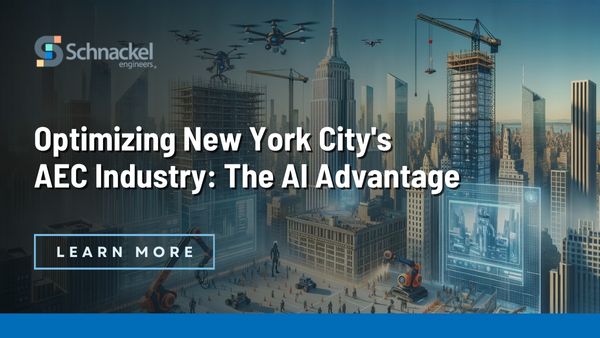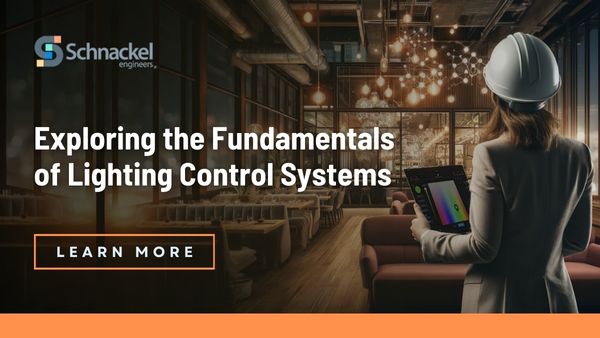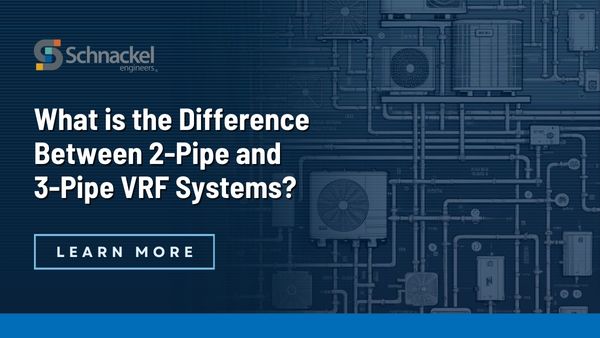Coordinating designs across architectural, structural, and MEP (mechanical, electrical, and plumbing) disciplines is one of the most challenging components of any construction project. Communication breakdowns, late-stage disputes, and misaligned designs can cause delayed schedules and budget overruns. BIM coordination offers a solution to this by ensuring that all disciplines work from a single, centralized model…. Read More
AI Adoption in AEC: A Look Back at 2024
The Architecture, Engineering, and Construction (AEC) industry made significant strides in the adoption and integration of AI technologies in 2024. This embrace of AI reshaped workflows, improved efficiency, and opened new possibilities across design, construction, and sustainability. However, challenges remain, and the path forward will require overcoming hurdles and seizing emerging opportunities. The Growing Importance… Read More
Siphonic Drainage Systems 101: Basics and Benefits
Effective roof drainage is regarded as critical for protecting buildings from water damage, ensuring structural integrity, and maintaining occupant safety. With increasingly unpredictable weather patterns and heavier rainfall caused by climate change, having a reliable drainage system has become more important than ever. Without effective solutions, rainwater accumulation can result in roof leaks, structural stress,… Read More
Do Electrical Rooms Need to Be Fire-Rated?
Electrical rooms are essential for the functionality and safety of commercial buildings. These spaces house critical systems such as transformers, switchgear, and circuit breakers, which ensure seamless power distribution. The equipment within electrical rooms also pose a significant risk. A common question arises: do these rooms need to be fire-rated? The answer depends on various… Read More
Heat Recovery vs. Heat Pump VRF Systems: What’s the Difference?
As building designs become more complex and costly, selecting the right HVAC system, that provides optimal comfort and energy efficiency, has never been more challenging. One solution that’s been gaining popularity is Variable Refrigerant Flow (VRF) technology, which offers many benefits, helping building owners and developers make better informed decisions about energy management, system flexibility,… Read More
HVAC Humidity Control: 4 Tactics for the Florida Environment
Maintaining optimal humidity levels in commercial and residential spaces is absolutely crucial for the health, comfort, and safety of the occupants everywhere, and even more so in Florida. The warm and moist climate presents many challenges that need special solutions. Effective HVAC humidity control improves comfort, prevents mold growth, protects building materials, and ensures efficient… Read More
Common Electrical Code Violations: Tips for Building Owners
For building owners, staying informed about common electrical code violations is not just about compliance—it’s a crucial step in safeguarding your property and its occupants. Electrical violations can lead to serious safety risks and substantial financial penalties. This blog delves into the most frequently encountered electrical code issues in commercial properties and offers actionable tips… Read More
Optimizing New York City’s AEC Industry: The AI Advantage
Optimizing New York City’s AEC Industry is crucial for maintaining its iconic skyline and driving urban development. However, this dynamic industry faces numerous challenges, such as inflation, supply chain disruptions, labor shortages, and a reluctance to embrace new technologies. These obstacles can impact the efficiency, safety, and cost-effectiveness of construction projects. Amidst these challenges, Artificial… Read More
Exploring the Fundamentals of Lighting Control Systems
Lighting is a pivotal aspect of both the functionality and aesthetics of any project. With technological advancements, the management and control of this essential design element have significantly transformed. Lighting control systems are now a integral component of contemporary architectural design, offering a blend of convenience, efficiency, aesthetics, and environmental friendliness. In this blog, we… Read More
Decarbonizing Nebraska with Advanced MEP Strategies
In the quest to combat climate change, Nebraska stands at a pivotal juncture. Nebraska may seem isolated from the sea level rise concerns of the coasts; however, agriculture contributes $25.7 billion to the state’s annual economy and agricultural success depends on the global environment. Nebraska must take an active role in decarbonization in order to… Read More
What is the Difference Between 2-Pipe and 3-Pipe VRF Systems?
Variable Refrigerant Flow (VRF) systems have emerged as a leading solution for climate control in diverse building types within the HVAC industry. Renowned for their versatility, small size, and energy efficiency, VRF systems depart from traditional centralized air conditioning, providing an adaptable and zone-specific approach to temperature control. Two distinct configurations exist within the VRF… Read More
Benefits of Energy Recovery Ventilation Systems for Decarbonization
As the world faces the pressing imperative to decarbonize and confront the challenges posed by climate change, the Architecture, Engineering, and Construction (AEC) industry emerges as a key player in championing sustainable solutions. One proactive approach in achieving decarbonization objectives revolves around the dynamic integration of Energy Recovery Ventilation systems into building HVAC designs. Let’s… Read More
6 Common MEP Mistakes to Avoid in Construction Projects
MEP systems serve as the fundamental support structure for any successful construction project. When properly designed and implemented, MEP systems ensure a building’s functionality, efficiency, and safety. However, there are several common mistakes that can significantly impact construction projects. In this blog, we will delve into the six common MEP mistakes to avoid and provide… Read More
Fan-Powered Induction Units: Efficient HVAC for Comfort & Control
In the ever-evolving landscape of HVAC systems, one innovation has been quietly revolutionizing the way we think about indoor climate control. Fan-Powered Induction Units (FPIUs) have emerged as a game-changer, offering a unique blend of efficiency, comfort, and sustainability. This blog will serve as your guide to understanding the remarkable capabilities of FPIUs, exploring how… Read More
Fire Sprinkler vs Fire Suppression Systems: Know the Difference
In the world of fire safety, when it comes to protecting lives and property, two key players take center stage: fire sprinkler and fire suppression systems. While both serve the critical purpose of combating fires, they do so through different methods and applications. Understanding the distinctions between these two fire safety solutions is essential for… Read More







